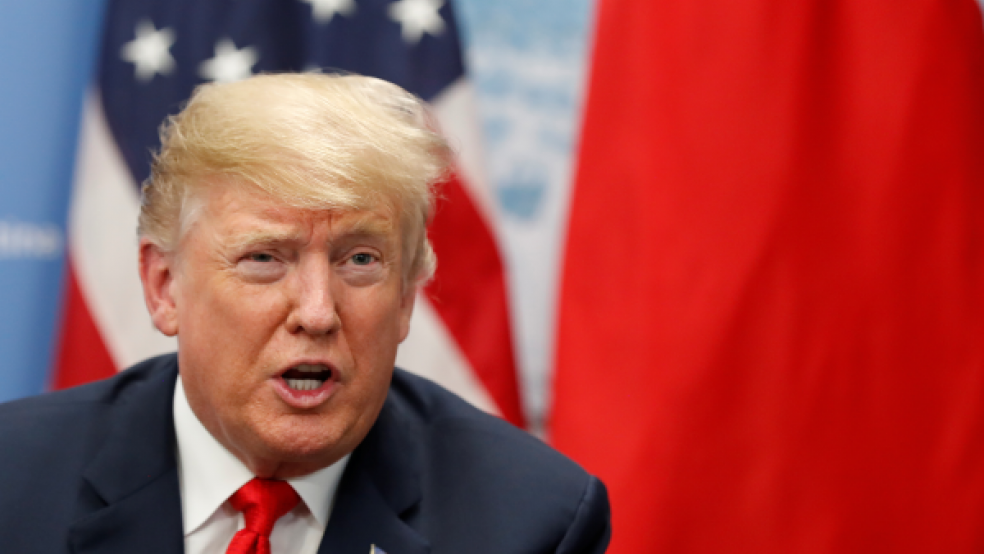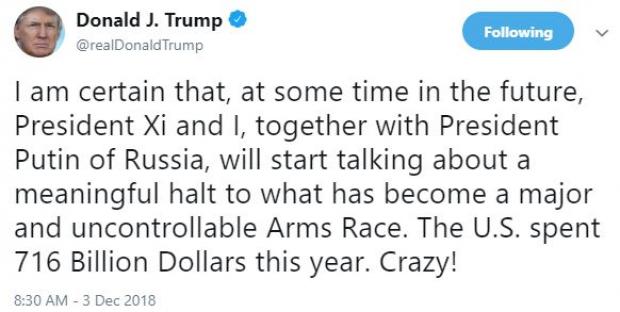Although he has repeatedly hailed the deal he made earlier this year to increase spending on what he called a “depleted” military, President Trump on Monday declared on Twitter that U.S. defense spending was too high, calling it “Crazy!”
A surprise twist from Trump: “It was the first time the president, who has expressed increasing frustration over the federal deficit, posted a Twitter message critical of military spending, which has increased for two straight years during his administration,” notes The Wall Street Journal’s Nancy A. Youssef.
Calling for cuts after touting increases: Trump signed off on that $716 billion defense budget for fiscal 2019 — an $82 billion hike from the previous year. At the time, he called it "the most significant investment in our military and our war fighters in modern history." But his administration has also asked the Pentagon to prepare a $700 billion budget for fiscal 2020, a 2.3 percent cut from 2019 and further below the $733 billion originally anticipated.
Negotiating with China and Russia: Todd Harrison, a defense budget expert with the Center for Strategic and International Studies, told the Military Times that Trump’s comment marked a significant change from Trump: "The two chief drivers of our national defense spending have been Russia and China, and he is suggesting he wants to reduce our spending through talks with them. This is huge. This is new.” But there’s no indication that talks to bring down military spending among the three powers are imminent.
Or warning them: “I think Trump is signaling/warning both if they don’t come to the table they will face a U.S. arms buildup that they will have to match,” James Jay Carafano of the conservative Heritage Foundation told the Military Times.
Deficit vs. defense: “I think the president is saying: If we can diminish the [national security] threats, then we can cut the defense budget and help deal with the deficit,” Lawrence Korb, a senior fellow at the Center for American Progress, told the Journal. “It began to dawn on him that this deficit is getting out of hand.”
Disappointing defense hawks? But even as the deficit rises, a recent report to Congress evaluating the Trump administration’s National Defense Strategy warned that U.S. military superiority had eroded and said that the military needed more resources. And the Republican chairs of the Senate and House Armed Services committees said last week that, while they are worried about the deficit, cutting defense spending would be dangerous.






